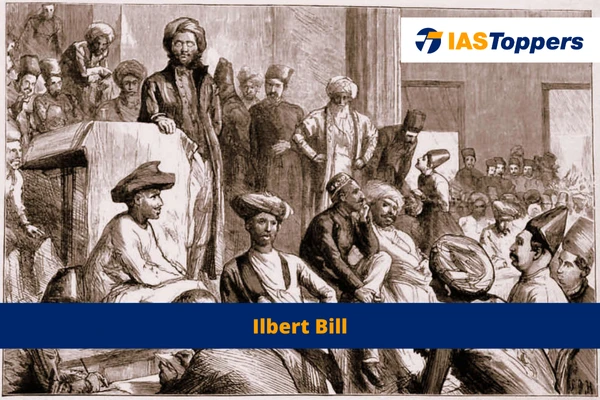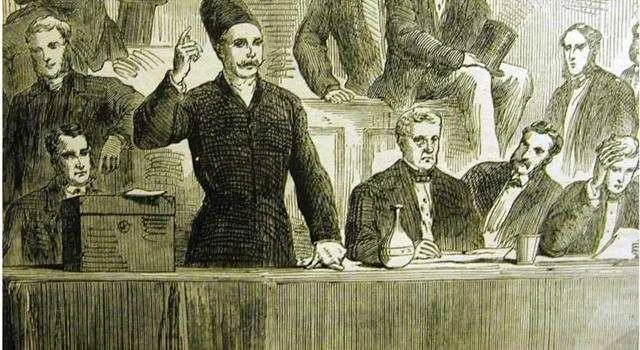Ilbert Bill is related to allowing senior Indian magistrates to handle cases involving British subjects in India in Sessions Courts. The bill was introduced by the Viceroy of British India Lord Ripon. In this article, you will learn all about Ilbert bill, objective of Ilbert bill, controversy, providing key insights for GS Paper- I Indian History section of UPSC IAS Exam.
Table of Content
- What is Ilbert Bill?
- Key proposals of Ilbert Bill, 1883:
- Development of the Ilbert Bill:
- Controversy of the Ilbert bill:
- Compromise stage
- Resolution:
- Conclusion
- Frequently Asked Questions
- Reference
What is Ilbert Bill?
- The Ilbert Bill was a controversial bill in Indian history that has proposed to allow senior Indian magistrates to handle cases involving British subjects in India in SessionsCourts.
- Senior Indian magistrates were mainly the senior Indian civil servants.
- The Ilbert Bill was introduced in 1883 by the Viceroy of British India Lord Ripon.
- The bill was enacted only in 1884 due to its criticism.
- Before 1873, British subjects were exempted from being tried by Indian magistrates.
- Only high courts can handle such cases that involved death or transportation.
Key proposals of Ilbert Bill, 1883:
- The bill addresses the jurisdiction of Magistrates or Sessions Judges during the trial of charges against “European British subjects” who were not themselves European.
Development of the Ilbert Bill:
- The bill was named after Courtenay Ilbert, who has initially suggested revising the Indian Criminal Procedure Act of 1861.
- The bill was drafted by Sir Courtenay Peregine Ilbert, the member of the Council of the Governor-General of India.
- Prime Minister William Gladstone of the United Kingdom has directed Lord Ripon to modify certain restrictive policies related to native Indian magistrates.
Controversy of the Ilbert bill:
Opposition of the bill:
- The introduction of the bill faced strong opposition in Britain and among British residents in India.
- The bill has triggered controversies regarding race and gender, leading to intense debates and protests.
- They argued that the bill will create racial animosity and undermines the idea that justice for natives was different from justice for Europeans.
- They argued that Indian judges were untrustworthy and incapable of handling cases related to British women.
- This led to ethnic tensions and increased hostilities between the British and Indians.
- The European business community in Calcutta (Kolkata) and the British tea and indigo planters in Bengal has protested against this bill.
- They were supported by the European and Anglo-Indian Defence Association.
Supported the bill:
- Many native Indians strongly supported the bill, as it would empower Indian magistrates who had received education under European systems.
- However, their support was less organized and vocal compared to the opponents.
- The resistance to the bill by Britishers has laid the groundwork for the establishment of the Indian National Congress one year later.
Compromise stage
- To reach a compromise, it was decided that British subjects could request a jury, with half of its members being Europeans.
- This arrangement left the Westernized Indian middle class feel disregarded.
- This incident has contributed to the development of Indian national sentiment in a political context.
Resolution:
- Due to the disapproval of the Ilbert Bill by many British women residing in India, Viceroy Ripon made an amendment.
- This amendment required that if an Indian judge presides over a case involving a European defendant, a jury consisting of 50% Europeans would be necessary.
- Eventually, a compromise was reached that granted jurisdiction to both European and Indian District Magistrates and Sessions Judges to try Europeans.
- In all cases, the defendant had the right to request a jury trial, with at least half of the jurors being European.
- In 1884, the bill was passed as the Criminal Procedure Code AmendmentAct 1884.
- It was made effective the same year.
Conclusion
The Ilbert Bill was passed during the late 19th century which has marked a significant turning point in the struggle for equality and justice for Indians in the British Raj. The bill aimed to remove racial discrimination within the judicial system by allowing Indian judges to preside over cases involving Europeans. The Ilbert Bill faced strong opposition from the European community, leading to its dilution and eventual failure.
Ref:
FAQs(Frequently Asked Questions)
What was Ilbert bill?
The Ilbert Bill was a controversial bill in Indian history that allowed senior Indian magistrates to handle cases involving British subjects in India in Sessions Courts.
Who was Ilbert?
The Sir Courtenay Peregine Ilbert has initially suggested revising the Indian Criminal Procedure Act of 1861. The Ilbert bill was named after him because he has drafted the bill as the member of the Council of the Governor-General of India.
What was the aim of Ilbert bill?
The main purpose of Ilbert bill was to remove racial discrimination within the judicial system by allowing Indian judges to preside over cases involving Europeans.
Why was Ilbert bill not passed?
The bill faced significant opposition from in Britain and among British residents in India. This was the reason the bill was not passed.
Which viceroy was associated with the Ilbert bill controversy?
The Ilbert bill was passed in 1883 by Viceroy Lord Ripon.
What was Ilbert bill controversy?
The Ilbert bill controversy was related to the opposition from Brits hers stating that the bill will lead to racial animosity and undermines the idea that justice for natives was different from justice for Europeans.




